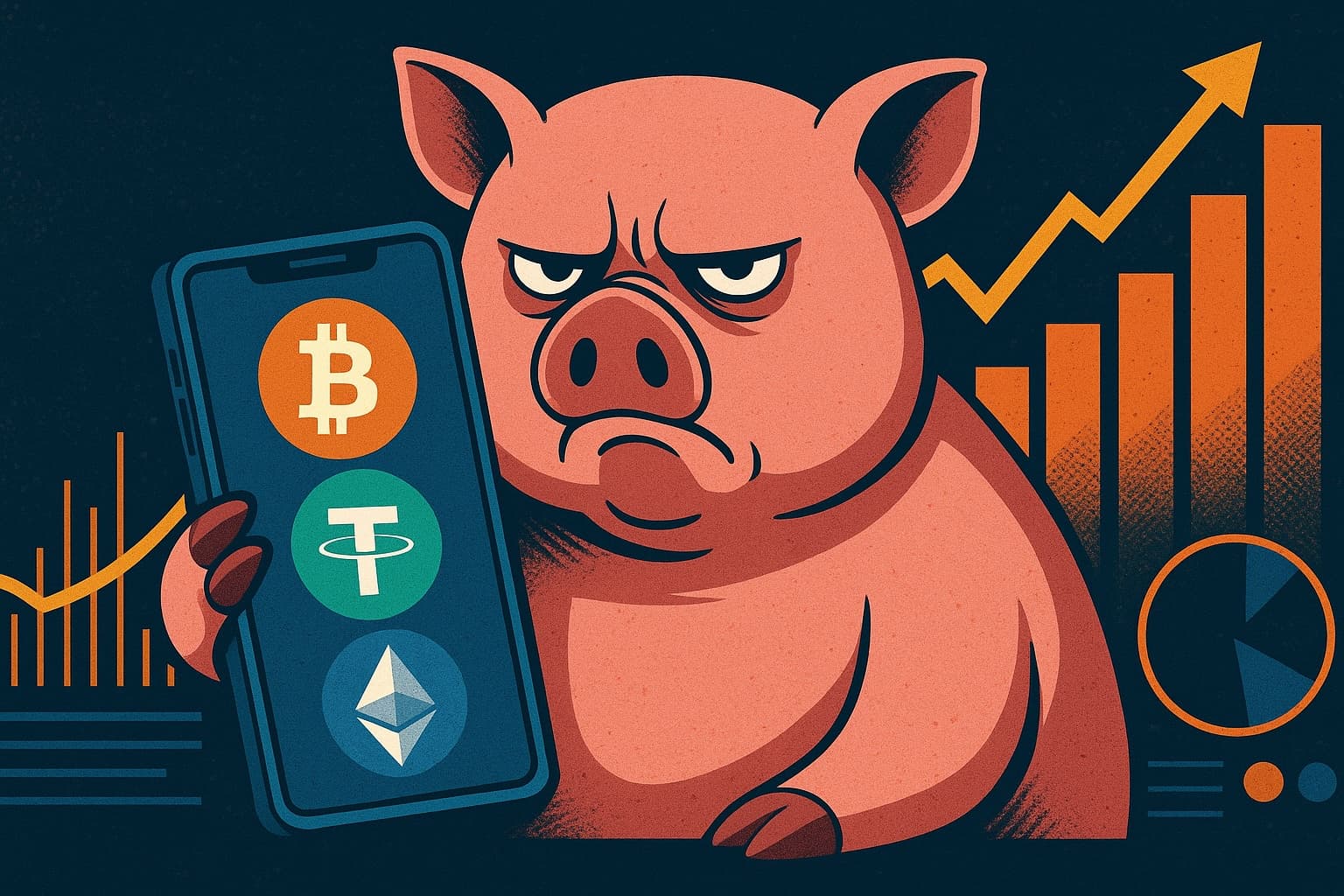Pig Butchering Crypto Investment Scam: 7 Warning Signs to Protect Yourself

The world of cryptocurrency is full of opportunity, but also full of traps. One of the fastest-growing and most devastating frauds is called the **Pig Butchering Scam**—a long-game con where scammers build fake relationships, gain trust, and eventually drain victims' savings through fraudulent crypto schemes.
The name comes from the way scammers “fatten up” their victims with constant communication and fake investment gains before “butchering” them with massive losses. Losses worldwide are estimated to be in the **billions of dollars annually**—and seniors, new investors, and even experienced professionals have fallen victim.
This article will break down the **7 most common signs of pig butchering scams** and how to protect yourself.
1. An Unexpected “Friendship” or Romantic Connection
Most pig butchering scams begin on social media, dating apps, or messaging platforms. You may get a message like, “Hey, did I text the wrong number?” or a friendly connection request.
At first, the conversation seems casual—sharing hobbies, family stories, or even romantic interests. But the true goal is to **build emotional trust**.
Red Flag: A stranger who quickly wants to move conversations to private platforms like WhatsApp or Telegram.
2. The “Once-in-a-Lifetime” Crypto Tip
Once trust is established, scammers introduce a “business opportunity.” Usually, this is a supposed **crypto trading strategy, mining operation, or investment platform** that promises consistent, risk-free profits.
They may even show fake screenshots of their “profits” to prove legitimacy.
Red Flag: Anyone who claims crypto investments are risk-free or guarantees fixed returns.
3. Fake Trading Platforms That Look Real
Scammers often create **professional-looking apps or websites** where you can deposit money and watch fake returns grow. Victims feel reassured because they can “log in” and see their balance increase.
But these balances are **fictional numbers**—your money is gone the moment you deposit it.
Red Flag: Platforms that aren’t listed on legitimate crypto exchange directories (like Coinbase or Binance).
4. High-Pressure Tactics to Invest More
As victims see their fake “profits” increase, scammers encourage larger deposits:
- “If you add $10,000, you’ll unlock VIP status.”
- “This investment round closes tomorrow, don’t miss out!”
This is where the “fattening” happens—scammers push victims to keep feeding the scheme.
Red Flag: Urgent deadlines or pressure to commit large sums fast.
5. Fake Withdrawals to Build Trust
To keep victims hooked, scammers sometimes allow small withdrawals early on. This creates **false credibility**, making people think the platform is real.
Then, when victims try to withdraw larger sums, excuses pile up:
- “You need to pay taxes first.”
- “Your account needs verification fees.”
- “There’s a system glitch—deposit more to unlock withdrawals.”
Red Flag: Any platform that asks for more money before allowing withdrawals.
6. The Emotional Manipulation Trap
Pig butchering isn’t just financial—it’s emotional. Scammers often pretend to be romantic partners or close friends, using **guilt and affection** to keep victims loyal.
Examples include:
- “I thought we were building our future together, why don’t you trust me?”
- “Don’t let fear stop you from financial freedom.”
Red Flag: Anyone who mixes personal relationships with financial investments.
7. Complete Ghosting After the “Butchering”
Once the scammer has extracted as much money as possible, they **disappear entirely**. Social media accounts vanish, apps shut down, and communication stops overnight.
Victims are left not only financially devastated but emotionally betrayed.
Red Flag: Sudden silence or vanished accounts after major transactions.
How to Protect Yourself
- **Verify Before You Trust** – Always check investment platforms with the SEC’s Investor.gov or FINRA’s BrokerCheck.
- **Be Wary of “Too Good to Be True” Returns** – Crypto is volatile; no one can guarantee profits.
- **Limit Online Relationships Around Money** – Genuine connections don’t push financial schemes.
- **Talk to Someone You Trust** – If you feel pressured, ask a friend, advisor, or family member before transferring money.
- **Educate Yourself Through Tools Like GroSecure** – Staying scam-aware is your best defense.
👉 **Want to spot this scam when you see it?** Click Here to Play the Game
Why This Scam Works
The Pig Butchering Scam is dangerous because it combines:
- **Romance Fraud** – Exploiting emotions.
- **Investment Fraud** – Exploiting greed and hope.
- **Tech Deception** – Exploiting trust in online platforms.
By the time victims realize what’s happening, they’re often emotionally invested and financially committed.
Final Thoughts
Pig butchering scams are **not just financial crimes—they are psychological crimes**. They target trust, relationships, and hope.
By learning the warning signs and sharing knowledge, we can protect ourselves and others. Remember, the best weapon against fraud is **awareness**.
If you or someone you know is new to crypto, senior, or simply cautious, share this article—and keep the conversation alive.